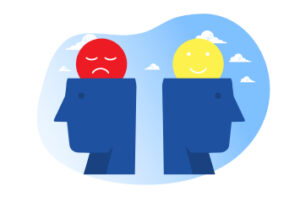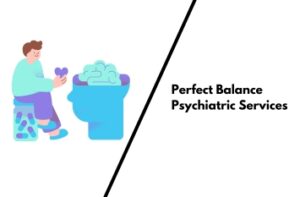
All You Need to Know About Dissociative Identity Disorder (DID)
All You Need to Know About Dissociative Identity Disorder (DID) Are you waking up each day not quite sure who you are or why your

As mentioned earlier, 1 in 4 people globally suffer from mental health issues. This means that mental illness is more common than we think. However, due to stigma and lack of awareness, many individuals do not seek help or talk about their struggles openly.
It’s essential to understand that mental illness is not a rare occurrence, and anyone can develop it at any point in their life. Seeking help early on can improve the chances of recovery.
While medication can be an essential part of managing mental health issues, it is not the only treatment option. Therapy, lifestyle changes, and self-care practices can also play a significant role in improving mental well-being.
It’s crucial to work with a mental health professional to determine the best treatment plan that suits an individual’s needs. What may work for one person may not necessarily be effective for another.
Contrary to popular belief, individuals living with mental illness are not more violent than the general population. In fact, they are more likely to be victims of violence themselves.
Mental health conditions can affect a person’s behavior, but that does not automatically make them dangerous or aggressive. Unfortunately, media portrayals often perpetuate this myth, leading to further stigma and fear towards those with mental illness.
This misconception only adds to the discrimination faced by those with mental health issues, making it harder for them to seek help and integrate into society.
Mental illness does not discriminate based on race, gender, socioeconomic status, or any other factor. It can affect anyone at any time.
Unfortunately, due to stereotypes and societal expectations, certain groups of people may face more stigma and barriers to accessing mental health care. It’s vital to recognize these disparities and work towards creating a more inclusive and accessible mental health care system for all.
As society becomes more diverse, it’s crucial to have mental health resources and support available for all individuals.
Mental illness is not something that can be “outgrown” or dismissed as a phase. It requires proper treatment and support to manage effectively.
Ignoring mental health concerns or dismissing them as temporary issues only prolongs the suffering and can lead to more severe symptoms in the long run. It’s essential to take our mental well-being seriously and seek help when needed.
Mental health conditions can be just as debilitating and life-threatening as physical illnesses. However, due to stigma and lack of understanding, they may not receive the same level of support or attention.
It’s crucial to recognize that mental illness is a serious medical condition that requires proper treatment and support. Just like physical illnesses, it can significantly impact a person’s daily life and well-being.
When we dispel these common myths and misconceptions surrounding mental health, we can create a more supportive and inclusive environment for those struggling with mental illness. It’s time to have open and honest conversations about mental health and show empathy towards those who may be facing their own battles.
By perpetuating these myths and misconceptions, we are only contributing to the stigma surrounding mental health. This stigma creates barriers for those seeking help, leading to delayed diagnosis and treatment.
When individuals believe that mental illness is rare or only affects certain types of people, they may be less likely to recognize symptoms in themselves or seek help when needed. This delay can lead to more severe symptoms and a longer road to recovery.
Furthermore, by portraying mental illness as a lifelong condition or something that can be “outgrown,” we are invalidating the experiences of those struggling with their mental health. This not only hinders their recovery but also adds to the shame and isolation already felt by many individuals.
The first step in breaking down these myths and dismantling the stigma is to educate ourselves and others about mental health. By learning the facts and understanding the realities of mental illness, we can better support those struggling with their mental well-being.
It’s also essential to recognize that our words matter when it comes to addressing mental health. Using stigmatizing language or perpetuating myths can be harmful and hurtful to those living with mental illness. Instead, we should strive to use person-first language and educate ourselves on proper terminology when discussing mental health.
Most importantly, it’s crucial to show empathy and compassion towards those dealing with mental health issues. By being understanding and providing support, we can create a more accepting environment for those in need.
Mental illness is a complex and often misunderstood topic, leading to many myths and misconceptions. By educating ourselves and others about mental health, we can break down the barriers and stigma surrounding it. Let’s work towards creating a more supportive and inclusive society for all individuals struggling with their mental well-being. Together, we can dispel these myths and provide the necessary support for those on their journey to recovery.
Remember, mental illness is not a weakness or something that can be easily dismissed; it’s a serious medical condition that deserves our attention and understanding.
Title: Mental Health Myths and Facts
Link: https://www.samhsa.gov/mental-health/myths-and-facts
Written By: Substance Abuse and Mental Health Services Administration
Published On: 24 April, 2023
Title: 10 Common Myths About Mental Illness
Link: https://aneweratms.com/10-common-myths-about-mental-illness/
Written & Published By: Anew Era TMS & Psychiatry

All You Need to Know About Dissociative Identity Disorder (DID) Are you waking up each day not quite sure who you are or why your

Who Can Prescribe Medication for Mental Health? In mental health treatment, the prescription of medication plays a pivotal role in alleviating symptoms, managing conditions, and

Perfect Balance Psychiatric Services: Your Path to Mental Wellness in Frisco, TX Welcome to Perfect Balance Psychiatric Services! We’re dedicated to providing comprehensive, compassionate mental
